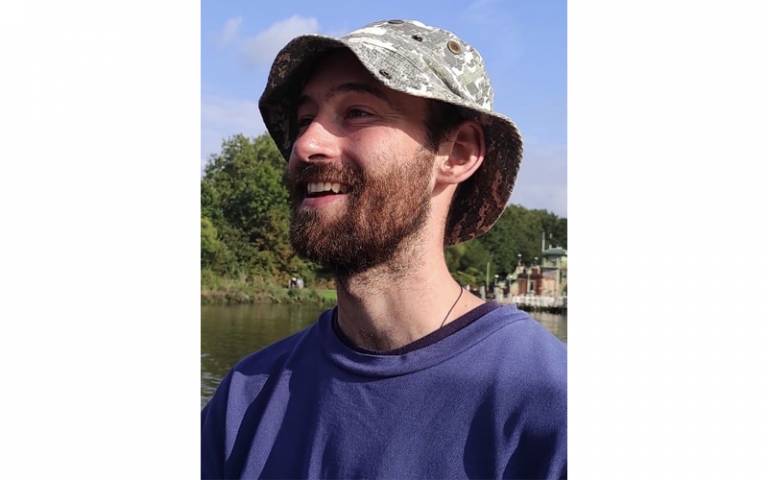Spotlight on Smart Energy and the Built Environment MSc student Chris Winters
3 June 2022
Chris Winters is currently studying Smart Energy and the Built Environment MSc at the UCL Energy Institute, here he shares his experience.

Before starting the Smart Energy and the Built Environment MSc, Chris studied Geology as an undergraduate and then spent three years working for the Environment Agency:
“I had a couple of different job roles, first as a Hydrogeologist and then as an Aerial Surveyor flying in light aircraft to collect LiDAR data. Funnily enough I recently realised some of the LiDAR data I collected has been used within the Energy Institute by the Building Stock Laboratory.”
On the MSc Chris has developed a number of skills such as modelling, statistics and data analytics, and has learnt about key issues related to the built environment:
“The course has taught me to how to approach complex interplay of sociotechnical issues involved in decarbonising the built environment. I am more discerning in the interpretation of data. I feel I have a realistic view of the challenges of widespread deployment of technologies key to making the energy transition happen.”
The course is taught by a range of academics from the UCL Energy Institute who are experts in their field, learning from these teachers has been a highlight for Chris:
“My biggest highlight has been learning from a range of academics who are leading experts in Smart Energy & the Built Environment. Their enthusiasm and insights are very inspiring & I always enjoy conversations inside and outside the classroom on the latest developments in this fast moving sector. A particular highlight was having fun with an infrared Camera in one of our early Fundamentals lectures to demonstrate radiative heat loss!”
Once he’s graduated, Chris hopes to move into the policy sector, helping local communities to decarbonise:
“I want to work on enabling widespread decentralised energy projects by creating the right policy incentives. I envisage decentralised generation as an obvious component of a resilient decarbonised future grid. I want to create a model by which local communities become intrinsically involved in the development of these projects, engendering a real sense of ownership and empowerment.”
To get the most out of their MSc, Chris would encourage future students studying Smart Energy and the Built Environment MSc to collaborate and learn from others:
“Talk to and work with as many people within the Energy Institute as possible. There’s such a wealth of experience and huge range of backgrounds both from the academics and your peers. Everyone has something to add to the discussion and there’s so much to learn!”
We’d like to thank Chris for taking the time to answer our questions and wish him well with the rest of his MSc and his future career.
 Close
Close

